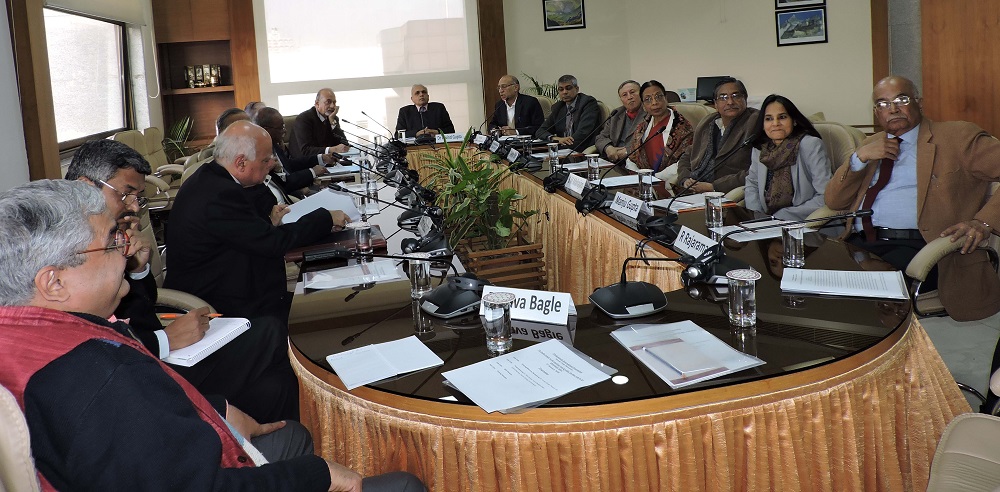On January 11, 2017, the Vivekananda International Foundation (VIF) organised a talk by Dr. Ravi Grover, Member, Atomic Energy Commission and Former Director, Homi Bhabha National Institute. The talk was moderated by Dr. Arvind Gupta, Director, VIF, and was attended by experts from industry, nuclear power sector, journalists and VIF scholars.
Dr. Grover began by forecasting India’s needs by the middle of the Century. He noted that India will need about 8600 twh or may be more energy, which is six times the generation in 2016-17; in per capita terms, it is about 4.5 times of the generation in 2016-17. Compared with the size of its population, he observed that India is not endowed with significant energy resources including coal, which though looks plentiful, but may not last more than 5 to 6 decades. Of the total 8600 twh requirement, he noted that the total electricity that can be provided by hydro, coal and wind will be of the order of 2000 billion kwh only. To provide a major part of the balance 6600 billion kwh, he argued that nuclear power is one option that needs to be pursued vigorously.

To ensure the growth of nuclear electricity generation in India, Dr. Grover suggested that the country needs to pursue an aggressive programme to locate more uranium resources in the country. In this regard, India should undertake policy initiatives to open up international trade in uranium; import uranium; and set up more Pressurised Heavy Water Reactors (PHWR) based on indigenous technology, or import uranium and set up Light Water Reactors (LWR) in technical collaboration with other countries, and recycle spent fuel in fast breeder reactors.
Additionally, he noted that India has multiple technology options at its disposal. These includes developing an indigenous Pressurized Water Reactor (PWR) technology; Use of slightly enriched Uranium in indigenous PHWRs; enriched Uranium based fast reactors; and conduct research and development efforts in the areas of fusion reactors and molten salt reactors. He concluded by suggesting a judicious selection on technology based on economics and ease of implementation which will pave the way for rapid growth of India’s nuclear power sector.






